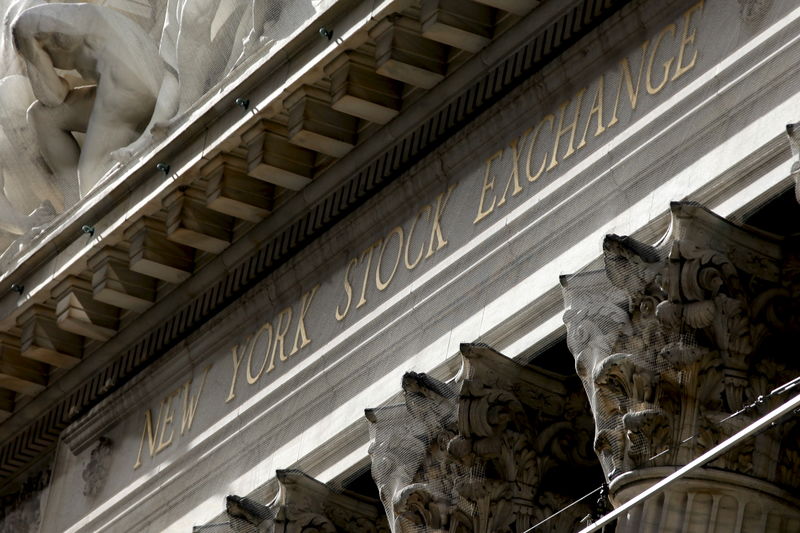Investing.com -- Markets pull back as the hoped-for olive branch from China fails to live up to expectations, while oil prices recover after losing their geopolitical risk premium in the wake of John Bolton's dismissal as National Security Advisor. Here's what you need to know in financial markets on Wednesday, 9th September.
1. China isn't sparing U.S. farmers
China kept up the pressure on U.S. farmers by refusing to exempt any important agricultural imports from tariffs.
Beijing published a list of products that wouldn’t be subject to a 25% tariff that was introduced last year. The list included cancer drugs and lubricant base oil but not soybeans, pork or corn.
They’re the first exclusions announced by Beijing since the tit-for-tat exchange of tariffs began last year and will run for a year from Sept. 17. Further exemptions are expected in due course.
2. Stocks set to open mixed, bonds consolidate after fall
U.S. stock markets were set to open flat to lower after the disappointing news from China. Futures had ticked up earlier after a tweet from the editor of a Chinese newspaper raised hopes for more encouraging news.
By 6 AM ET, Dow Futures were up 0.1%, while the S&P 500 Futures contract was effectively unchanged and the Nasdaq 100 Futures contract was down less than 0.1%. The news also caused European markets to trim earlier gains.
The news also stabilized bond yields which had corrected sharply upward on Tuesday. The 30-Year Treasury bond yield was at 2.20%, down from an overnight high of 2.22%, while the 10-year note yield was at 1.72%, down from a four-week high of 1.74%.
3. A new Internet giant lists in Europe, while Peloton starts pedaling to market
The world got a new Internet giant stock to invest in, as South African investment company Naspers (OTC:NPSNY) spun off its holdings in Chinese social media and gaming group Tencent (OTC:TCEHY) and other ventures on the Euronext exchange in Amsterdam.
Prosus (AS:PRX), as the company is called, owns 31% of Tencent, as well as a portfolio of investments in food delivery, social media and payments. The shares popped by some 25% at opening, giving it a value of over $130 billion.
Elsewhere, exercise bike maker Peloton began marketing for its initial public offering seeking a valuation of just over $8 billion, while doubts continued to swirl around the fate of The We Company’s proposed IPO.
4. OPEC report, U.S. inventory data due
Oil prices recovered after falling sharply in response to the firing of John Bolton as National Security Advisor, a move that analysts said reduces the risk of conflict with Iran and Venezuela.
The Organization of Petroleum Exporting Countries will publish its monthly report on the global oil market at 7 AM ET, a day ahead of an important meeting with its non-member allies on monitoring the effects of their agreement on output restraint.
Speculation is growing that the “OPEC+” group will have to cut its output even further to prevent a new glut on world markets. The U.S. government’s short-term energy outlook on Tuesday cut its forecast for global demand growth this year to 900,000 barrels a day, the weakest since 2011, due to the global economic slowdown. It expects U.S. production to rise by over a million barrels a day in the next 12 months.
At 10:30 AM ET, the U.S. will publish last week's crude inventories data. API data released yesterday showed an inventory drawdown of 7.2 million barrels, rather than the 2.7 million barrels expected.
5. Hong Kong Exchange goes for global glory
Hong Kong’s stock exchange made a surprise $36.6 billion bid for London Stock Exchange Group (LON:LSE), in an attempt to disrupt the latter’s $27 billion offer for Refinitiv. LSE and Refinitiv had agreed on the terms of a deal last month. LSE said it would consider the bid.
Hong Kong Exchange and Clearing said its proposal would “create a world-leading market infrastructure group with a global footprint, diversified across asset class, ideally positioned to benefit from the evolving global macroeconomic landscape, connecting the established financial markets in the West with the emerging financial markets in the East, particularly in China.”
The offer comes after three months of political unrest which caused Hong Kong’s Hang Seng index, the bellwether for one of the world’s biggest stock exchanges, to fall over 16%. It is now down less than 10% from its April peak.
